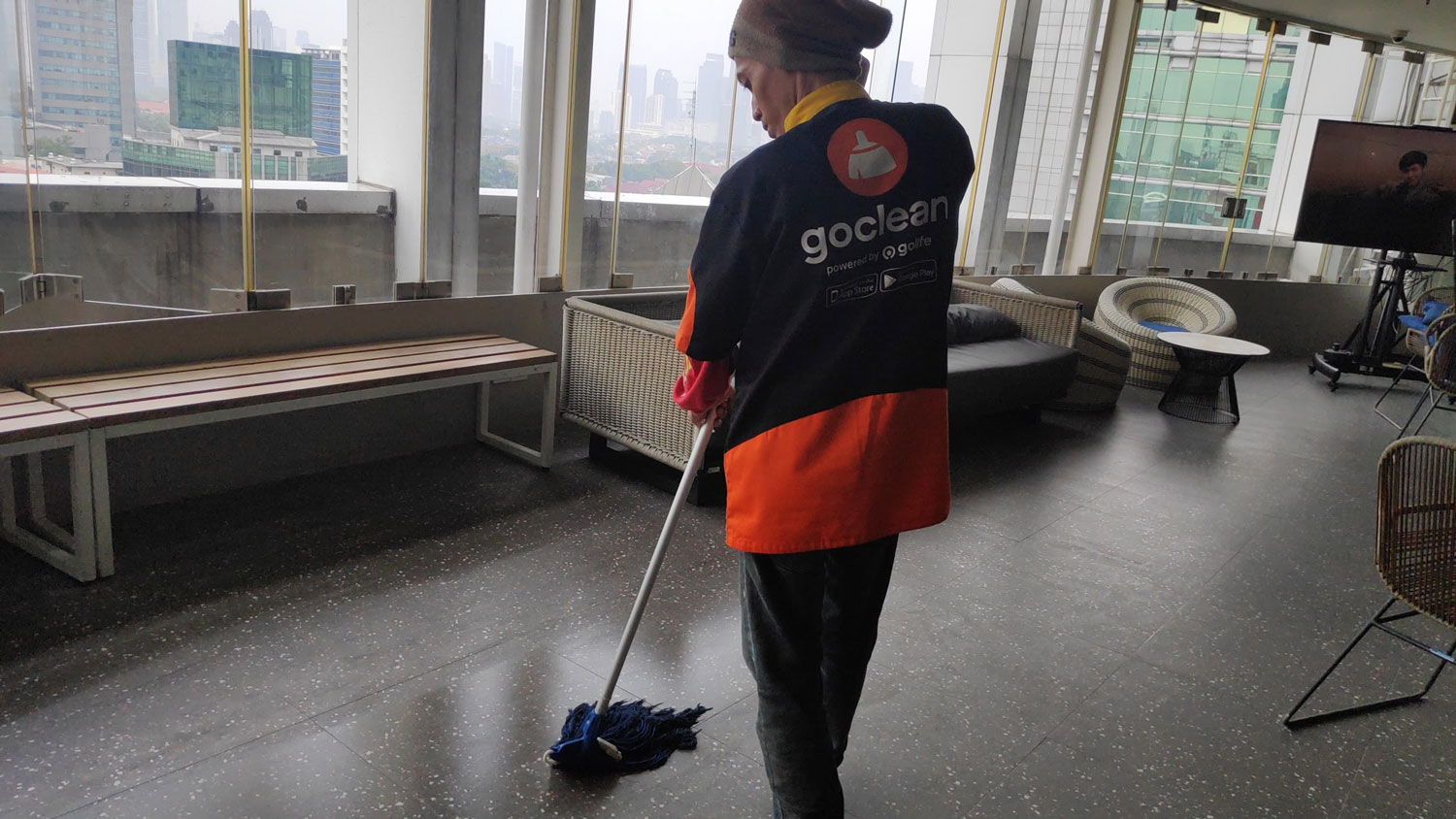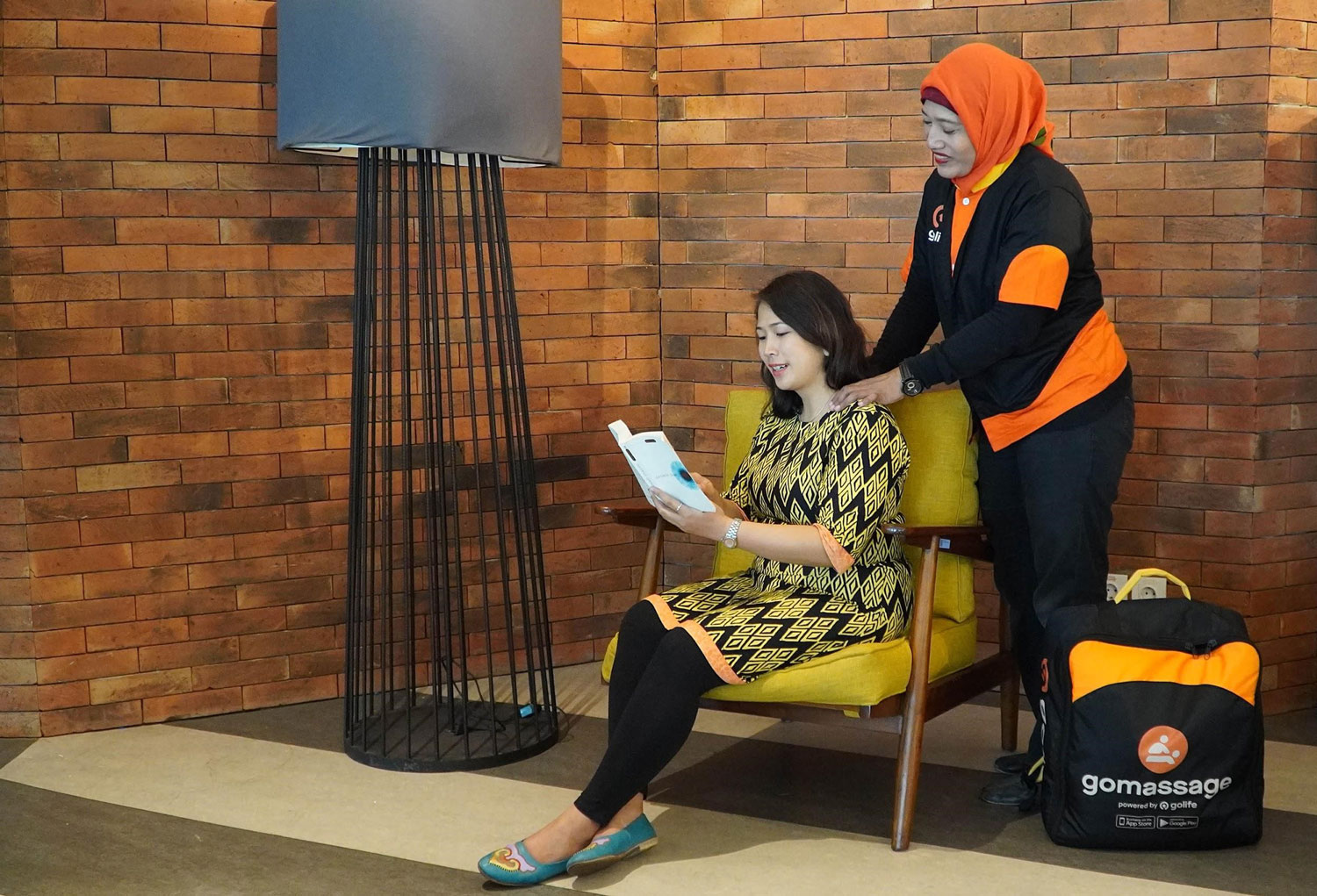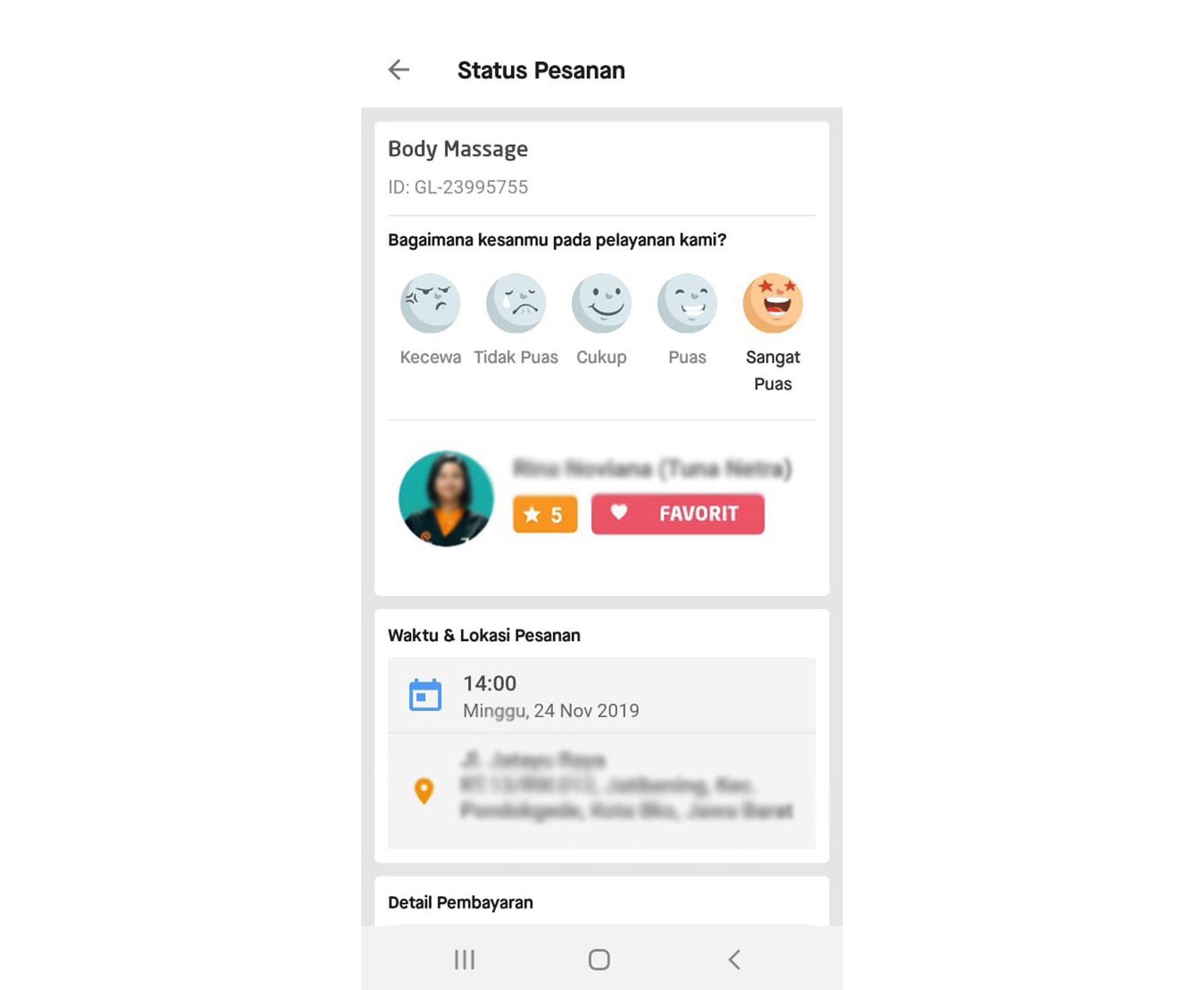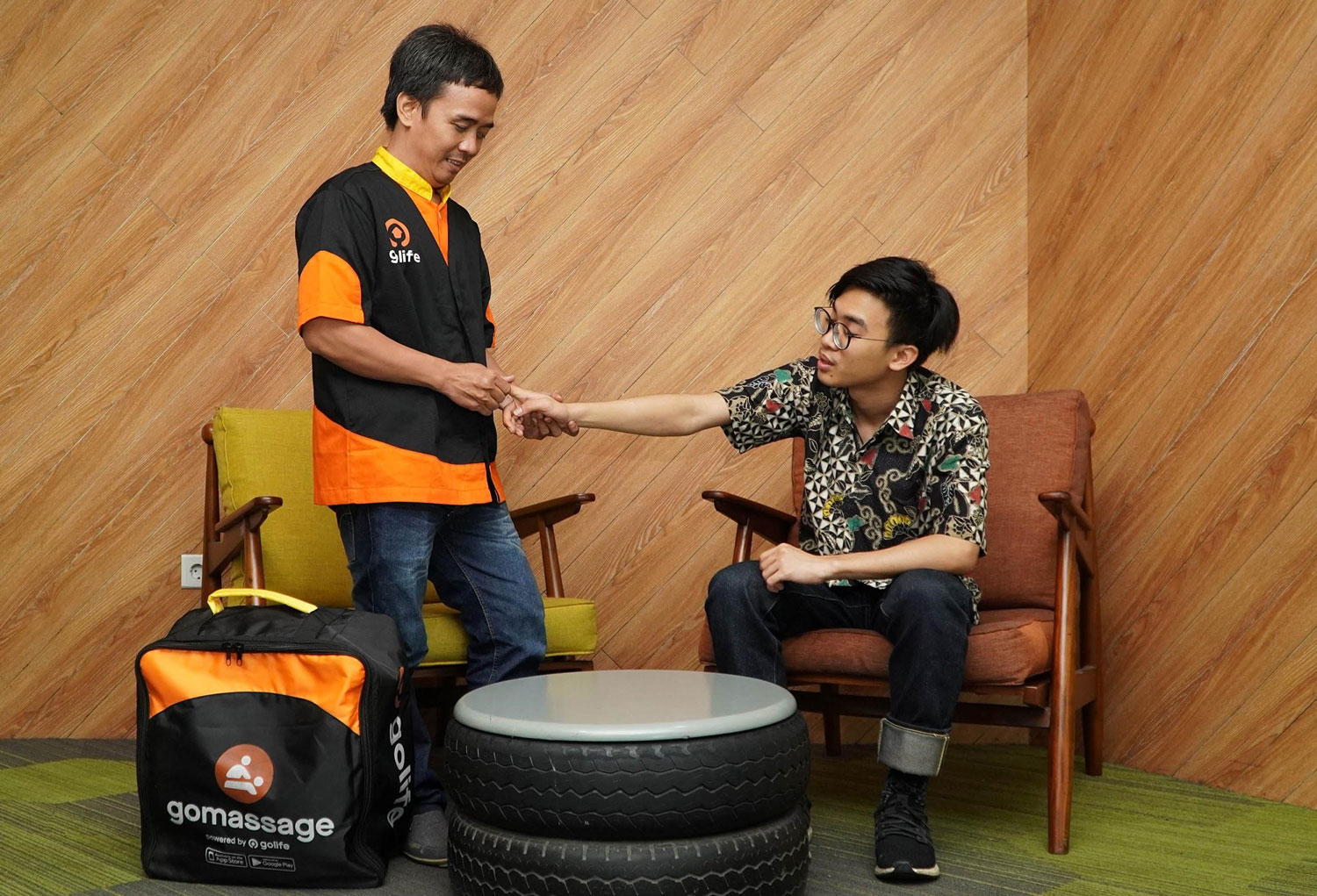In recent years, there have been massive campaigns to promote equal opportunities in independent living for people with disabilities. Gojek, the homegrown tech company, has taken extraordinary steps in promoting disability rights in society.
Customers can now share their memorable experiences of meeting and receiving services from disabled partners in GoLife, an on-demand multi-service lifestyle app of Gojek.
Cyril Raoul Hakim, also known as Chico, is a senior executive in a company in Jakarta who loves to use the GoLife app to help him do his chores. Among his many encounters with GoLife partners, he said he has had pleasant experiences with the disabled ones.

This year, Chico has encountered disabled GoLife partners several times, including when he ordered the GoClean service.
Chico said he previously rarely had meaningful interactions with people with disabilities, but would gladly give them the chance to handle cleaning jobs.
Chico said he always trusted the GoLife brand and was convinced that any workers GoLife recruited were professional. Chico, moreover, said he noticed the disabled workers got a very high ratings: above 4.5. Those were near-perfect.
“At first, I was wondering whether people gave them a higher rating solely because of their disability, not because of their performance,” he said.
But he was wrong, Chico admitted. Disabled GoLife partners exerted self-discipline and showed admirable perseverance. “I didn’t see them, for example, playing with their phones during their service,” he said.
All of the three disabled GoLife partners who did his chores were deaf, meaning that they can concentrate on their jobs better as they can’t hear idle talk or any distracting background noises.
Disabled workers are by no means uncaring. They are, in fact, proactively helpful, Chico added. One time, a relative came to his home and the deaf GoLife partner was willing to stop his work and open up the gate to let his relative’s car enter the property. Chico highlighted that not everyone might want to do something beyond their job description. To sum up, it was a simple act of kindness that Chico appreciates.
“I’m satisfied with their work performance and I hope more companies are willing to hire people with disabilities,” he said. “They have the right to work.”
Chico also applauded Gojek for opening up equal employment opportunities to people with disabilities, calling it a great initiative for disabled workers.
Disabled people are still excluded in many aspects of their lives, including education and employment. “If children with disabilities lack proper education, they will face hurdles in getting a job in the future,” says Rika Kumala Dewi, a researcher at the SMERU Research Institute, who has studied about disability inclusion in Indonesia.
Facing discrimination and growing up with little social support might discourage disabled people from blending in with their nondisabled peers. This will create a gap between the disabled and the nondisabled, reinforcing negative stigma and discrimination against people with disabilities, especially in the communities that lack experience interacting with them.

Meanwhile, Gojek’s lifestyle app, GoLife, has opened up job opportunities for people with disabilities. Currently, GoLife has hired many disabled people as house cleaners, car wash attendants and massage therapists in 13 cities and regions across Indonesia, including Greater Jakarta, Bandung, Yogyakarta, Bali, Balikpapan and Bandar Lampung, among others.
Such an opportunity enables them to interact with many customers. When disabled workers can prove their competence, the public perception of people with disabilities might change for the better. Many people will understand that disabled workers are as capable as their nondisabled fellow workers.
This can break the vicious circle of disability discrimination.
However, there should be a bigger effort from more companies and individuals to end discrimination and achieve equality. Continuous campaigns for disability rights, then, could be the key to a brighter future.
“We appreciate the efforts done by companies like Gojek to support people with disabilities,” says Rezanti Putri Pramana, another researcher at the SMERU Research Institute. “Hopefully, it can change the paradigm in society about disabled people.”

Gojek has long promoted inclusivity, while its on-demand lifestyle app GoLife is currently running a campaign called #BeraniSama (DaretobeSame) in an attempt to increase the awareness of disability rights and eliminate discrimination against disabled people in society.
In 2018, GoLife had run a campaign on inclusivity rights with a hashtaggable name: #HilangkanBatasan (RemovetheBarrier). Gojek tries to eliminate barriers between disabled people and nondisabled people through its on-demand lifestyle services in the GoLife app. The campaign also aims to show the hard work and excellent performance of GoLife partners with disabilities. The long-running campaign aims to debunk myths about disabilities.
This year, GoLife reintroduced the campaign under a new name: #BeraniSama. The campaign commemorates International Disability Day, which is observed every Dec. 3, while highlighting its continuous commitment to the #BeraniSama movement.
“This campaign seeks to provide two-way learning for both GoLife customers and its partners,” says Yuanita Agata, the vice president of marketing for GoLife. She notes that the campaign intends to change the negative perception of people with disabilities and encourage the disabled so they perform as well as their nondisabled peers.
“Bringing positive social impacts has been part of Gojek’s DNA,” Yuanita adds. “Since its first establishment, Gojek always looks for how to propel the economic growth in Indonesia and improve the lives of Indonesians through technology.”







